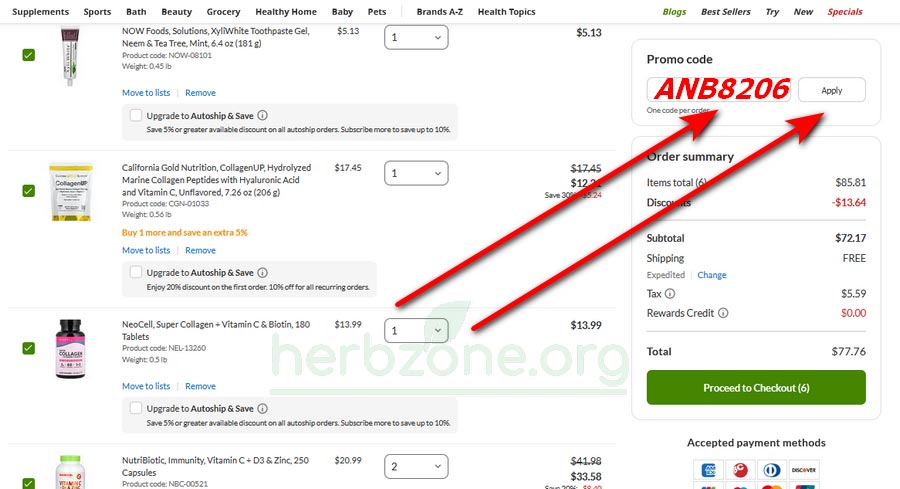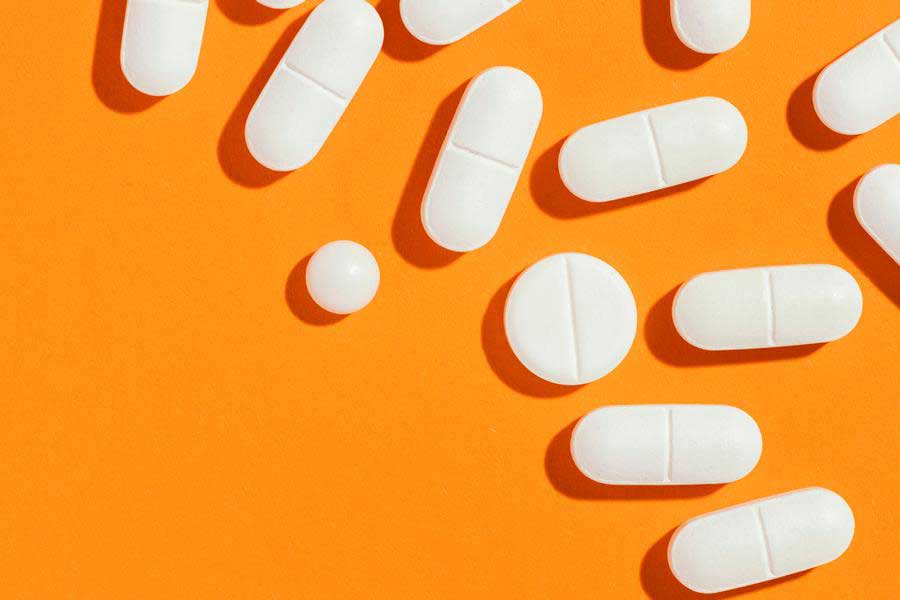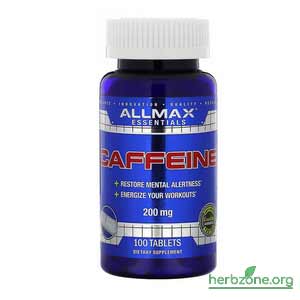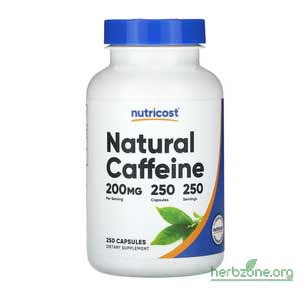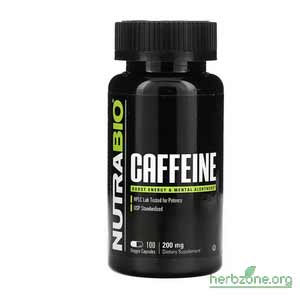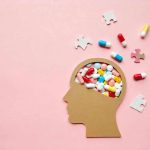While some people consume multiple cups of coffee throughout the day to boost their energy for physical or mental work, others opt for caffeine in the form of dietary supplements. The goal remains the same – enhancing energy, focus, and physical endurance – which can be achieved in different ways. In this article, together with Herbzone, we will explore the benefits of caffeine in tablets, its advantages, and potential health risks.
In This Article:
- Caffeine in Tablets: the Benefits
- Potential Risks and Side Effects
- Symptoms of Caffeine Overdose
- Proper Use of Caffeine Tablets
Caffeine in Tablets: the Benefits
Caffeine is one of the most popular natural stimulants. It can be found in various products, from coffee and tea to energy drinks and tablets. However, while tasty beverages can lead to excessive consumption, caffeine supplements in the form of capsules or tablets allow for precise dosing.
Here are the main benefits of caffeine supplements:
1. Increased Energy and Alertness
Caffeine helps boost energy levels, reduces fatigue, and enhances concentration. This is particularly beneficial in situations where one needs to stay alert and focused. Caffeine in tablet form provides the same effects as caffeine in beverages but allows for better control over dosage, making it more convenient to use.
2. Improved Focus and Cognitive Functions
Caffeine enhances brain function by increasing processing speed. It improves attention and decision-making skills, making caffeine tablets popular among students preparing for exams and professionals whose work requires constant focus.
3. Enhanced Physical Endurance
Sports supplements containing caffeine have long been favored by athletes and fitness enthusiasts. Caffeine can improve physical endurance, increase strength, and aid faster recovery after intense workouts. This is due to its stimulating effect on the cardiovascular system and improved blood circulation.
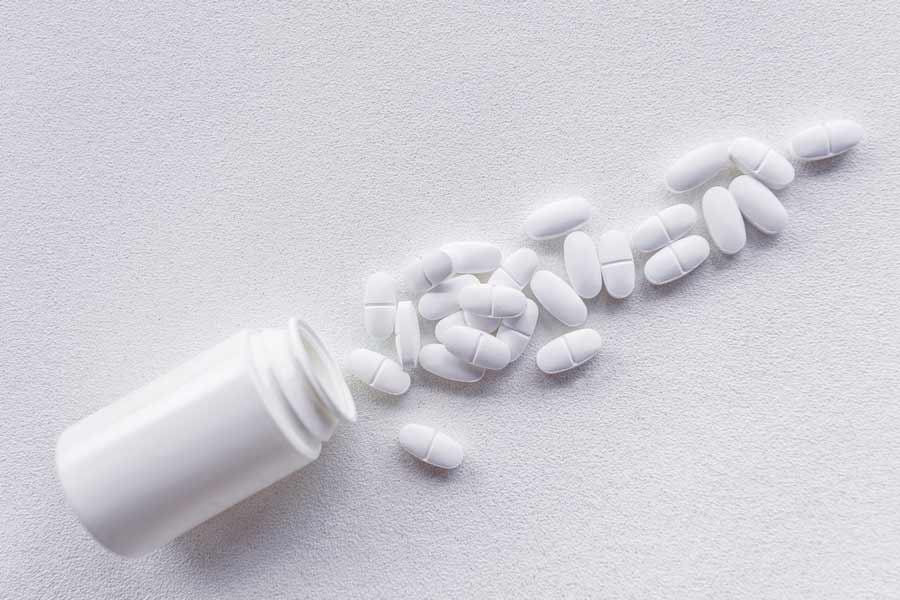
4. Boosted Metabolism and Weight Loss Support
Caffeine promotes thermogenesis, which speeds up metabolism and increases energy expenditure, allowing the body to burn more calories even at rest. This is why caffeine tablets are often included in dietary supplements for weight loss. However, it is important to understand that caffeine alone will not produce significant weight loss results without proper nutrition and physical activity.
5. Antidepressant Effect
Studies suggest that caffeine can positively influence mood by reducing the risk of depression and anxiety disorders. It stimulates the release of neurotransmitters such as dopamine and serotonin, which contribute to a positive mood and emotional balance.
6. Convenience and Precise Dosing
Caffeine tablets are ideal for those who want to get their caffeine dose without extra calories or additional ingredients found in energy drinks or coffee. Another advantage of tablets is that they allow for precise dosage adjustments according to individual needs.
7. Relief from Headaches and Migraines
Caffeine helps alleviate headache or migraine symptoms. Research suggests that caffeine can constrict blood vessels in the brain, reducing pulsation and pain associated with migraines. This is why many headache medications include caffeine as a key ingredient.
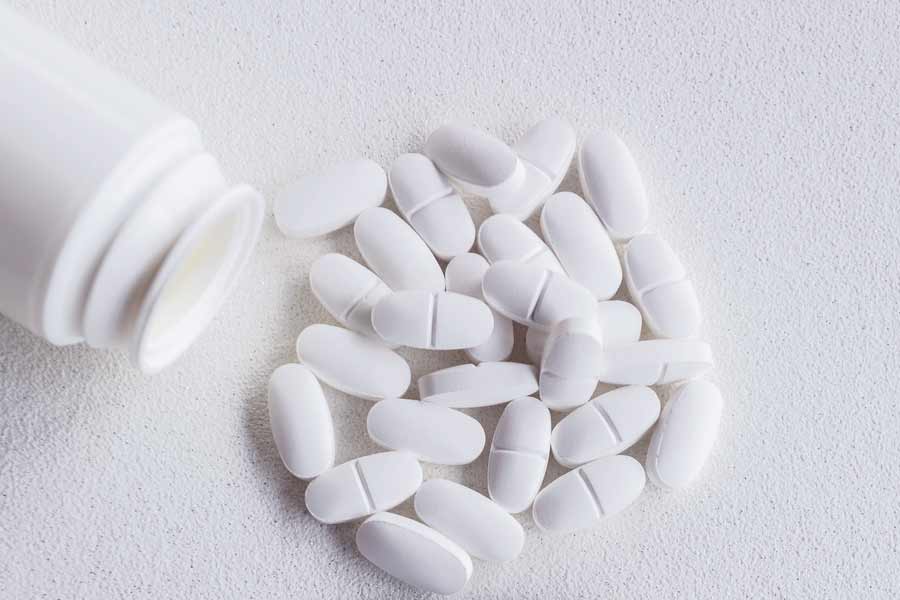
Potential Risks and Side Effects
Despite its numerous benefits, caffeine in tablet form has some potential side effects, especially when consumed in excessive amounts. The main risks include:
- Insomnia and Sleep Disruptions – Taking caffeine, especially in the afternoon or evening, may interfere with sleep quality. Read also: What to drink to sleep well?
- Anxiety and Nervousness – Excessive caffeine intake can lead to restlessness, irritability, and nervousness.
- Increased Blood Pressure – In some individuals, caffeine may temporarily elevate blood pressure.
- Dependence – Regular caffeine consumption can lead to dependence, resulting in withdrawal symptoms such as headaches, irritability, and fatigue.

Symptoms of Caffeine Overdose
Overdosing on caffeine can cause a range of symptoms, from mild to severe, depending on the amount consumed and individual sensitivity.
Mild to Moderate Symptoms:
- Hand tremors
- Increased anxiety or nervousness
- Insomnia or difficulty sleeping
- Rapid heartbeat or palpitations
- Headaches
- Dizziness or mild nausea
- Excessive sweating
- Gastrointestinal discomfort (e.g., stomach pain)
Severe Symptoms (with significant overdose):
- Sudden rise in blood pressure
- Irregular heartbeats (arrhythmia)
- Vomiting or diarrhea
- Seizures
- Heatstroke or hyperthermia (elevated body temperature)
- Breathing difficulties
- Muscle weakness or coordination issues
- Psychosis or hallucinations
To avoid overdose, it is crucial to follow proper dosing guidelines, which we will discuss next.

Proper Use of Caffeine Tablets
Caffeine tablets stimulate the central nervous system without the need to consume coffee or energy drinks. However, to maximize their benefits and minimize potential side effects, it is essential to take them correctly. Here are some tips for proper caffeine tablet consumption:
💡 By the way, a single espresso contains approximately 80-100 mg of caffeine, a regular cup of coffee has around 120-150 mg, and energy drinks range from 50 to 150 mg per serving, depending on the brand.
| Tip | Description |
| Follow the recommended dose | Do not exceed the dosage stated on the packaging or recommended by your doctor (typically 100-200 mg per intake). The maximum safe dose for a healthy adult is 400 mg per day. Exceeding this amount may cause side effects like anxiety, high blood pressure, and sleep problems. |
| Choose the right time to take it | Since caffeine stimulates the nervous system, it is best to take it in the morning or early afternoon. Avoid taking caffeine tablets in the evening, as they may cause insomnia or sleep disturbances. |
| Avoid combining with other caffeine sources | If you already consume coffee, tea, or energy drinks, be mindful of your total caffeine intake to stay within the recommended daily limit (up to 400 mg). |
| Do not use caffeine as a sleep substitute | While caffeine can temporarily reduce fatigue, it does not replace proper rest. Overuse can lead to nervous system exhaustion and dependence. |
| Drink with water | Take caffeine tablets with plenty of water to prevent stomach irritation and help caffeine enter the bloodstream more efficiently. Staying hydrated also counteracts caffeine’s diuretic effect. |
| Be cautious if you have medical conditions | If you have cardiovascular diseases, sleep disorders, or anxiety issues, consult a doctor before taking caffeine tablets. |
| Avoid excessive use | Overuse can lead to headaches, nervousness, tremors, sleep disturbances, and digestive issues. If side effects occur, reduce the dose or take a break. |
| Monitor caffeine dependence | Regular caffeine use can lead to dependence, causing withdrawal symptoms like headaches and irritability when caffeine is not consumed. Consider taking occasional breaks or gradually reducing your intake. |
| Take before workouts | Caffeine is beneficial for athletes as it enhances endurance and reduces fatigue. Take it 30-60 minutes before exercise for optimal results. |
Caffeine in tablets is a convenient and efficient way to boost energy, focus, and physical endurance. However, it is essential to stick to proper dosages to avoid side effects. Like any other supplement, caffeine should be part of a healthy lifestyle, including a balanced diet and regular exercise.
The promo code ANB8206 allows you to get a discount of 5-30%.
It can be used every time.
